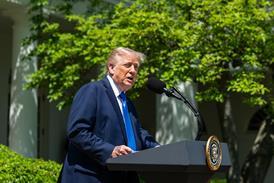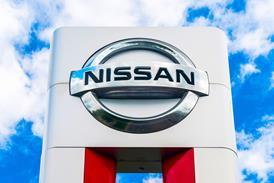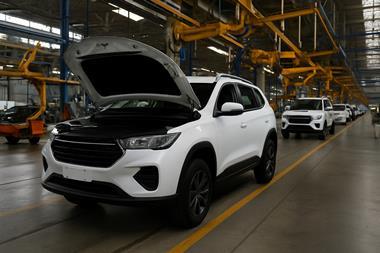 Tesla is closing all of its showrooms globally and moving to an online sales model in an effort to lower overheads and find cost efficiencies across the business. The carmaker hopes this will help it to deliver its Model 3 product at a lower price of $35,000 (£26,400) and therefore boost sales.
Tesla is closing all of its showrooms globally and moving to an online sales model in an effort to lower overheads and find cost efficiencies across the business. The carmaker hopes this will help it to deliver its Model 3 product at a lower price of $35,000 (£26,400) and therefore boost sales.
The premium electric carmaker said last week that shifting all sales online, combined with “other ongoing cost efficiencies”, would enable it to lower all vehicle prices by about 6% on average. According to a widely reported email from the carmaker's CEO Elon Musk to company employees, Tesla sold 78% of the 140,000 Model 3 units it made in 2018 online.
“Over the next few months, we will be winding down many of our stores, with a small number of stores in high-traffic locations remaining as galleries, showcases and Tesla information centres,” said the company in a statement. Tesla currently has around 276 stores worldwide with around 130 of those in the US (of which California accounts for 35).
“The important thing for customers in the United States to understand is that, with online sales, anyone in any state can quickly and easily buy a Tesla.”
Tesla said that it was currently possible to buy one of its vehicles using a phone in about one minute in North America, a facility it planned to extend soon worldwide.
The carmaker has run into a number of legal battles in the US over its showroom model because it conflicts with the standard dealership model in the country. Typically carmakers use independent dealerships. Tesla by contrast sells cars directly to customers, though not through the showroooms. Nevertheless, because carmakers are banned or limited in selling their own vehicles in 48 states, Tesla has battled multiple lawsuits.
Aftermarket service networkAt the same time as it is closing the showrooms, the electric carmaker said it would be increasing its investment in the Tesla service system. Tesla said it was changing its parts distribution approach to ensure spare parts were available in a timely manner at all service centres globally, and also that it was aiming to send aftermarket service engineers to the customer on the same day any service was requested.
[mpu_ad]From a logistics perspective, it is not clear how Tesla aims to guarantee a same-day personalised aftermarket service, though it has an extensive service centre network. It currently has 78 service centres spread across the US with 24 of those in California, while in Europe it has around 77 (see table below).
In its full year results update, the company said it would double service capacity where needed by moving to a two-shift operation, as well as simplifying processes to increase service throughput.
"We are also increasing the functionality of the Tesla App for scheduling service in order to improve responsiveness and convenience for our customers," said the carmaker.
According to Tesla, at the end of 2018 it had 378 locations open worldwide, with 27 new store and service locations opened in the fourth quarter. That figure indicates that a substantial number of its locations combine both stores and service centres, though the company has not provided details of this and there are also no figures for service centres in mainland China.
Tesla currently delivers all of its vehicles directly to customers from strategically located storage and distribution centres, such as the one it operates in Las Vegas. It said last month that it was working on reducing vehicle transport times and improving the timeliness of scheduled deliveries, in line with the aforementioned "other ongoing cost efficiencies". According to an earlier statement, the company plans to lower logistics costs by investing in its own car transporter capacity to improve deliveries. When asked, the company refused to comment on how vehicle deliveries would be affected by the latest announcement or whether those centres would deal with the aftermarket requirements of its customers.
Looking ahead, Tesla said in its most recent business update that Model 3 volumes would grow substantially this year compared to 2018, thanks to a full year of high production rates at its Fremont facility in the US.
"Model 3 production volumes in Fremont should gradually continue to grow throughout 2019 and reach a sustained rate of 7,000 units per week by the end of the year," said the company in its full-year update.
It also looked to the start of production of the Model 3 at its Gigafactory in Shanghai, China, work on which began in January this year.
Region Stores (inc. galleries) Service centres
US 130 78
Canada 11 7
Mexico 2 2
Europe 100 77
China (inc. Hong Kong and Macao) 28 [figures not available]
Rest of World 18 18
Join supply chain and automotive IT experts from BMW, Daimler, GM, Magna, NIO, Pirelli, Samsung and many more at The Supply Chain Conference, as they strategise and outline practical steps for future automotive supply chains, on March 19-21 in Atlanta.






































